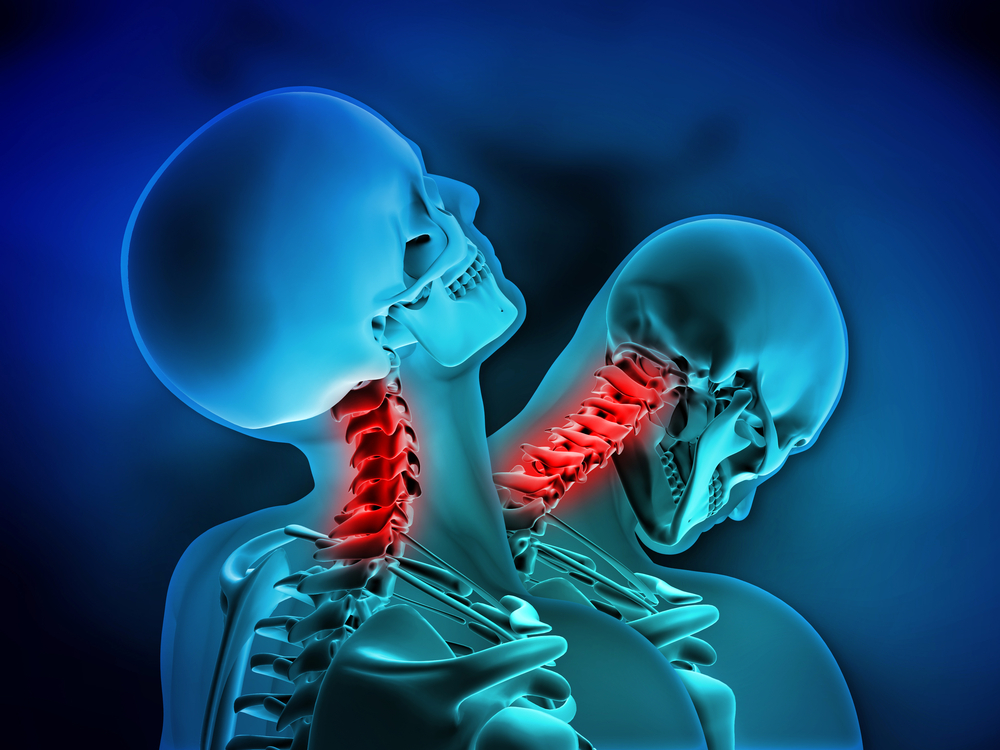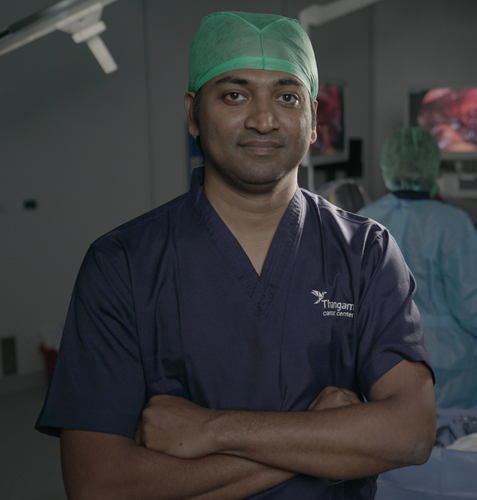Robotic head & neck surgery in India
With high incidence and fatality rates, head and neck cancer is a major health problem in India. Leading head and neck cancer treatment centres in India are found in Chennai, specifically the Thangam Robotic Institute.
Radiation therapy, chemotherapy, robotic surgery, and other therapies are all provided by the institute. Modern technology is used in India's head and neck robotic surgery to remove cancerous cells while leaving healthy tissue untouched, leading to shorter recovery times and fewer complications.
The skilled team of surgeons and oncologists at the Thangam Robotic Institute collaborate to give individualised care to each patient, assuring the greatest outcomes for individuals battling head and neck cancer.

What is Robotic head & neck surgery
A variety of illnesses affecting the mouth, soft palate, throat, tongue, and tonsils are among the disorders of the head and neck, including both malignant and non-cancerous conditions.
One of the top and most skilled doctors who excels at robotic assisted head and neck surgery is found at Thangam Robotic Institute. Our cutting-edge technology streamlines surgeons' tasks and hastens patient recuperation.
With the help of our skilled staff, we provide end-to-end knowledge and follow a special diagnosis, treatment, and postoperative care protocol. To provide head and neck surgery patients with lifelong support and care, our team of surgeons, nurses, dietitians, speech therapists, exercise physiologists, social workers, and spiritual care specialists collaborates.

Dr. Saravana Rajamanickam M.S., M.Ch.,
Founder
Specialized Lung & Esophageal Cancer Surgeon
Dr. Saravana Rajamanickam is an authority in the field of thoracic oncology and specialises in the treatment of mediastinal tumours, lung cancer, and esophageal cancer. Oncology is a somewhat uncommon field, and most parts of the nation have few experts in it. In order to lessen the discomfort and difficulties associated with treating such tumours, he is particularly interested in performing surgeries using "Minimally Invasive" techniques and cutting-edge technologies, including robotics. He is engaged in research to develop new lung cancer treatment plans in addition to his clinical activities.
Read MoreConditions Treated:
Robotic TORS (Transoral Robotic Surgery)
A minimally invasive robotic method through the mouth and throat is utilised in transoral robotic surgery (TORS) to treat cancers of the mouth, throat, and skull base. TORS allows for more thorough access to and dissection of neoplastic growths and worrisome lesions in the oral cavity as well as those that extend from the throat to the base of the skull. With robotic surgery, the surgeon can work in small spaces without making a significant incision.
Robotic Surgery for sleep apnea
Obstructive sleep apnea (OSA) condition is a rapidly expanding issue that has been identified in the Indian population. Given the rising prevalence of OSAH and the low compliance rates associated with continuous positive airway pressure, surgical therapy options for OSA are regaining popularity. Transoral robotic surgery (TORS) has been used successfully for tongue base reduction and epiglottoplasty in the ongoing search for the best method to treat these areas. This method is secure and well tolerated thanks to the extensive training our surgeons have received.
Robotic Neck Dissection
Squamous cell carcinoma of the head and neck requires a multimodal approach for treatment. The primary surgical procedure for treating nodal illness in the neck, the neck dissection, has undergone significant evolution over a long period of time. The gold standard surgical approach is the open neck dissection, which comes in a variety of forms depending on the location and severity of the disease. The precision of the surgeon and the robot make robot-assisted neck dissections the greatest solution today for a shorter hospital stay and a quicker recovery.
FAQ
-
What kinds of head and neck malignancies are surgically treatable in India?
Oral, laryngeal, pharyngeal, and thyroid cancers are just a few of the cancers that can be treated with head and neck surgery in India.
-
What prevalent surgical techniques are used to treat head and neck cancer?
Laryngectomy, pharyngectomy, glossectomy, and neck dissection are common operations for head and neck cancer.
-
What advantages do head and neck operations have in India?
In India, patients can obtain cutting-edge technology and sophisticated surgical methods for a lower price than in many other nations. Highly qualified surgeons and medical professionals can provide patients with individualised care.
-
How long does it take to recover from head and neck surgery?
Depending on the procedure, head and neck surgery recovery times vary, but most patients can resume their regular activities in two to four weeks.
-
What dangers come with having a head and neck operation?
Surgery on the head and neck carries a few potential risks, such as bleeding, infection, nerve injury, and trouble speaking or swallowing. However, with the right pre-operative planning and good surgical technique, these risks can be reduced.
